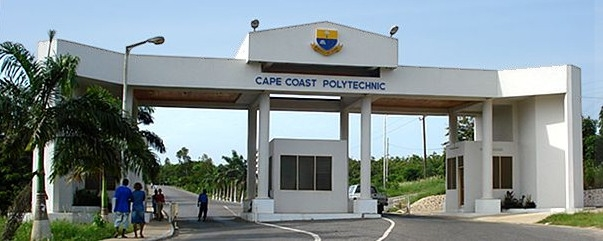
Cape Coast Technical University calls for governing council
The Cape Coast Technical University (CCTU) has appealed to the government to as a matter of urgency constitute its governing council to help in the smooth administration of the institution.
Advertisement
At the 13th congregation of the university last Saturday, the Vice Chancellor of CCTU, Professor Lawrence Atepor, said the absence of a governing council had created lots of uncertainties for the university.
“We are, therefore making a passionate appeal to President Nana Addo Dankwa Akufo–Addo to get our council inaugurated,” he reiterated.
The absence of governing councils for the CCTU and the Tamale Technical University (TTU) has infuriated lots of lecturers of the two institutions, especially those at the TTU.
In September 2017, lecturers and staff of the TTU issued a press statement to register their displeasure after the government inaugurated governing councils for six technical universities, which were converted from polytechnics, but did not do same for the TTU and CCTU.
During the inauguration of the councils on September 8, 2017, the Minister of Education, Mr Matthew Opoku Prempeh, reportedly said the CCTU and TTU’s governing councils would be inaugurated soon.
They are yet to receive parliamentary approval to become technical universities.
Congregation
The congregation saw the graduation of 1,126 students who were awarded Bachelor of Technology degrees, Higher National Diplomas and professional diplomas.
It was the first congregation of CCTU since its conversion from a polytechnic to a technical university by an executive instrument, awaiting parliamentary approval.
Prof. Atepor said the university was committed to delivering technical-related programmes as part of its mandate under the Technical University Act.
As an example, he mentioned the establishment of a Centre for Entrepreneurship Development and Innovation (CEDI) by the university to provide other artisanal, technical and vocational programmes.
Some of the programmes offered by the centre include dressmaking, hairdressing, mobile phone repairs, masonry, plumbing and the repair of motor vehicles.
Support
A member of the Council of State, Mr Francis Seth Nyonyo, who was the special guest of honour at the event, underscored the need for technical education to be supported to help drive the industrialisation agenda of the government.
He described technical education as the heart of every industrialisation programme, such as the one-district, one-factory policy.
He said the one-district, one-factory policy showed the government’s commitment to liberalising the economy in order to curb the unemployment situation.
But the policy, Mr Nyonyo contended, could not be sustained without massive support for technical education.
“The government cannot relent on its support to technical universities funding, as this will promote growth and regulate the artisanal industry. In this regard, jobs will be available in abundance for our youth,” he said.
In a speech read on his behalf, a Deputy Minister of Education in charge of Tertiary Education, Professor Kwesi Yankah, reiterated the need for technical institutions to collaborate with industries to help boost the practical acumen of students.
“Close collaboration with industry will help students and staff experience the first-hand challenges facing industry and tailor their research activities towards seeking practical solutions to such challenges,” he said.



